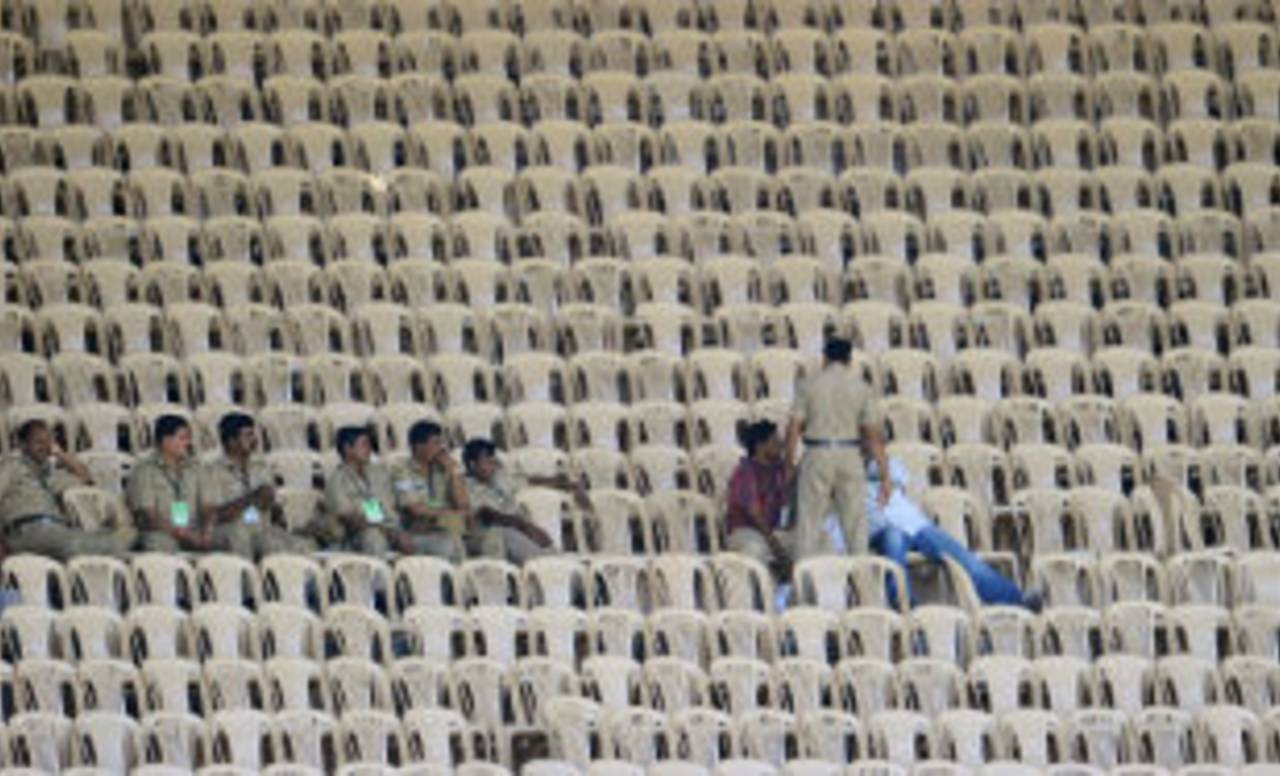And so, after spending much time and money, after generating much hope and enthusiasm among lovers of Test cricket, the ICC Test Championship has more or less been
put back by four years, to a rather distant 2017. Cricket will have had three or four world events in between. Much can change between now and 2017. I greatly fear that the ICC Test Championship will go down as a romantic idea that fell at the doorstep of television funding.
It is important to understand that different people view this game differently. The players, most of the media, and some administrators, represent the more romantic side of cricket. They want the game retained as it was in their childhood, and enjoy the relative timelessness of it all. Arrayed against them (in a manner of speaking, since accountants can be cricket lovers too!) are the number crunchers: people who will do the sums, add and subtract numbers and work out if a Test championship is indeed a profitable venture. You can be passionate, but nobody is in the business of losing money.
Every time I want to feel the pulse of cricket in India, I speak to media buyers - people who have the responsibility of spending money that belongs to their clients. Contrary to the widely held view of such people in the money markets, media buyers need to be responsible folk, since they are, eventually, answerable. The opinion of media buyers is an aggregation of what corporations interested in sport believe, and so it is a fair snapshot of the popularity of the game. The view of the media buyer is also critical to the rights holders, because they have to recover money that has already been spent.
You can understand why ESPN STAR Sports would have preferred an ICC tournament played over 50 overs over a Test championship. I suspect the ICC would have had the option of replacing one with the other at a lower rights fee, but the money that flows in from television rights funds almost all the cricket-playing nations, and the ICC cannot take a cut on that. The only option, therefore, would be to put a Test championship into the calendar while inviting bids for the next issue of television rights.
And so, in what must be rather humbling for all of us who like to have a say in where the world game should go, we don't count. In the commercial world that sport needs necessarily to exist in, it is not the ICC's cricket committee, made up of some respected names, that decides on a Test championship but the media buyers and sponsors in different parts of the world. Well, actually, India.
This has implications for cricket. Healthy as Test cricket might seem on the surface, it ranks third among the three forms of the game in terms of advertiser interest, which is a direct reflection of public interest. And it would be fair to say that outside of England, and occasionally Australia, India and South Africa, it may not be a good business proposition; that maybe the much-maligned one-day international still funds the much-feted Test match.
Something else is happening in India that might have a bearing on the future of the game here. A friend recently told me that for the first time since he can remember, nobody asked him if he could get them passes for the one-day international against England in Delhi -- the stronghold of "pass culture". Now that might be too little evidence to base a conclusion on but it is an indicator that Indian audiences now believe there is too much cricket thrust on them.
And so they will prioritise. A friend who works closely on the business side of television told me recently that only two questions seem to matter in the viewership stakes. Are India playing? And are India winning? He might have a point because we recently had an excellent Champions League that not many people watched.
In the days ahead, Indian cricket will either have to offer less to its fans or live with less rights money per game coming its way. It is still a huge market but for the first time the implications of too much cricket are starting to be felt in terms of viewership and revenues.
So 2017, by the looks of it, for the ICC Test Championship, and some breathing space for the teams placed 3-6.
ESPN STAR Sports is a 50:50 joint venture between Walt Disney (ESPN, Inc.), the parent company of ESPNcricinfo, and News Corporation Limited (STAR)
Harsha Bhogle is a commentator, television presenter and writer. His Twitter feed is here
